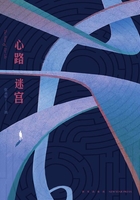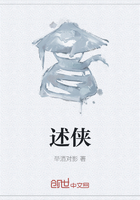The Duke of Egypt pointed sadly to the two streams of boiling lead which did not cease to streak the black facade, like two long distaffs of phosphorus.
“Churches have been known to defend themselves thus all by themselves, ”he remarked with a sigh.“Saint-Sophia at Constantinople, forty years ago, hurled to the earth three times in succession, the crescent of Mahom, by shaking her domes, which are her heads. Guillaume de Paris, who built this one was a magician.”
“Must we then retreat in pitiful fashion, like highwaymen?”said Clopin.“Must we leave our sister here, whom those hooded wolves will hang tomorrow.”
“And the sacristy, where there are wagon-loads of gold!”added a vagabond, whose name, we regret to say, we do not know.
“Beard of Mahom!”cried Trouillefou.
“Let us make another trial, ”resumed the vagabond.
Mathias Hungadi shook his head.
“We shall never get in by the door. We must find the defect in the armor of the old fairy; a hole, a false postern, some joint or other.”
“Who will go with me?”said Clopin.“I shall go at it again. By the way, where is the little scholar Jehan, who is so encased in iron?”
“He is dead, no doubt, ”some one replied; “we no longer hear his laugh.”
The King of Thunes frowned:“So much the worse. There was a brave heart under that ironmongery.And Master Pierre Gringoire?”
“Captain Clopin, ”said Andry the Red, “he slipped away before we reached the Pont-aux-Changeurs.”
Clopin stamped his foot.“Gueule-Dieu! 'twas he who pushed us on hither, and he has deserted us in the very middle of the job!Cowardly chatterer, with a slipper for a helmet!”
“Captain Clopin, ”said Andry the Red, who was gazing down Rue du Parvis, “yonder is the little scholar.”
“Praised be Pluto!”said Clopin.“But what the devil is he dragging after him?”
It was, in fact, Jehan, who was running as fast as his heavy outfit of a Paladin, and a long ladder which trailed on the pavement, would permit, more breathless than an ant harnessed to a blade of grass twenty times longer than itself.
“Victory!Te Deum!”cried the scholar.“Here is the ladder of the longshoremen of Port Saint-Landry.”
Clopin approached him.
“Child, what do you mean to do, corne-dieu!with this ladder?”
“I have it, ”replied Jehan, panting.“I knew where it was under the shed of the lieutenant's house. There's a wench there whom I know, who thinks me as handsome as Cupido.I made use of her to get the ladder, and I have the ladder, Pasque-Mahom!The poor girl came to open the door to me in her shift.”
“Yes, ”said Clopin, “but what are you going to do with that ladder?”
Jehan gazed at him with a malicious, knowing look, and cracked his fingers like castanets. At that moment he was sublime.On his head he wore one of those overloaded helmets of the fifteenth century, which frightened the enemy with their fanciful crests.His bristled with ten iron beaks, so that Jehan could have disputed with Nestor's Homeric vessel the redoubtable title of dexeubolos.
“What do I mean to do with it, august king of Thunes?Do you see that row of statues which have such idiotic expressions, yonder, above the three portals?”
“Yes. Well?”
“'Tis the gallery of the kings of France.”
“What is that to me?”said Clopin.
“Wait!At the end of that gallery there is a door which is never fastened otherwise than with a latch, and with this ladder I ascend, and I am in the church.”
“Child let me be the first to ascend.”
“No, comrade, the ladder is mine. Come, you shall be the second.”
“May Beelzebub strangle you!”said surly Clopin, “I won't be second to anybody.”
“Then find a ladder, Clopin!”
Jehan set out on a run across the Place, dragging his ladder and shouting:“Follow me, lads!”
In an instant the ladder was raised, and propped against the balustrade of the lower gallery, above one of the lateral doors. The throng of vagabonds, uttering loud acclamations, crowded to its foot to ascend.But Jehan maintained his right, and was the first to set foot on the rungs.The passage was tolerably long.The gallery of the kings of France is to-day about sixty feet above the pavement.The eleven steps of the flight before the door, made it still higher.Jehan mounted slowly, a good deal incommoded by his heavy armor, holding his crossbow in one hand, and clinging to a rung with the other.When he reached the middle of the ladder, he cast a melancholy glance at the poor dead outcasts, with which the steps were strewn.“Alas!”said he, “here is a heap of bodies worthy of the fifth book of the Iliad!”Then he continued his ascent.The vagabonds followed him.There was one on every rung.At the sight of this line of cuirassed backs, undulating as they rose through the gloom, one would have pronounced it a serpent with steel scales, which was raising itself erect in front of the church.Jehan who formed the head, and who was whistling, completed the illusion.
The scholar finally reached the balcony of the gallery, and climbed over it nimbly, to the applause of the whole vagabond tribe. Thus master of the citadel, he uttered a shout of joy, and suddenly halted, petrified.He had just caught sight of Quasimodo concealed in the dark, with flashing eye, behind one of the statues of the kings.
Before a second assailant could gain a foothold on the gallery, the formidable hunchback leaped to the head of the ladder, without uttering a word, seized the ends of the two uprights with his powerful hands, raised them, pushed them out from the wall, balanced the long and pliant ladder, loaded with vagabonds from top to bottom for a moment, in the midst of shrieks of anguish, then suddenly, with superhuman force, hurled this cluster of men backward into the Place.There was a moment when even the most resolute trembled.The ladder, launched backwards, remained erect and standing for an instant, and seemed to hesitate, then wavered, then suddenly, describing a frightful arc of a circle eighty feet in radius, crashed upon the pavement with its load of ruffians, more rapidly than a drawbridge when its chains break. There arose an immense imprecation, then all was still, and a few mutilated wretches were seen, crawling over the heap of dead.
A sound of wrath and grief followed the first cries of triumph among the besiegers. Quasimodo, impassive, with both elbows propped on the balustrade, looked on.He had the air of an old, bushy-headed king at his window.
As for Jehan Frollo, he was in a critical position. He found himself in the gallery with the formidable bellringer, alone, separated from his companions by a vertical wall eighty feet high.While Quasimodo was dealing with the ladder, the scholar had run to the postern which he believed to be open.It was not.The deaf man had closed it behind him when he entered the gallery.Jehan had then concealed himself behind a stone king, not daring to breathe, and fixing upon the monstrous hunchback a frightened gaze, like the man, who, when courting the wife of the guardian of a menagerie, went one evening to a love rendezvous, mistook the wall which he was to climb, and suddenly found himself face to face with a white bear.
For the first few moments, the deaf man paid no heed to him; but at last he turned his head, and suddenly straightened up. He had just caught sight of the scholar.
Jehan prepared himself for a rough shock, but the deaf man remained motionless; only he had turned towards the scholar and was looking at him.
“Ho!Ho!”said Jehan, “what do you mean by staring at me with that solitary and melancholy eye?”
As he spoke thus, the young scamp stealthily adjusted his crossbow.
“Quasimodo!”he cried, “I am going to change your surname:you shall be called the blind man.”
The shot sped.The feathered vireton whizzed and entered the hunchback's left arm.Quasimodo appeared no more moved by it than by a scratch to King Pharamond.He laid his hand on the arrow, tore it from his arm, and tranquilly broke it across his big knee; then he let the two pieces drop on the floor, rather than threw them down.But Jehan had no opportunity to fire a second time.The arrow broken, Quasimodo breathing heavily, bounded like a grasshopper, and he fell upon the scholar, whose armor was flattened against the wall by the blow.
Then in that gloom, wherein wavered the light of the torches, a terrible thing was seen.
Quasimodo had grasped with his left hand the two arms of Jehan, who did not offer any resistance, so thoroughly did he feel that he was lost. With his right hand, the deaf man detached one by one, in silence, with sinister slowness, all the pieces of his armor, the sword, the daggers, the helmet, the cuirass, the leg pieces.One would have said that it was a monkey taking the shell from a nut.Quasimodo flung the scholar's iron shell at his feet, piece by piece.When the scholar beheld himself disarmed, stripped, weak, and naked in those terrible hands, he made no attempt to speak to the deaf man, but began to laugh audaciously in his face, and to sing with his intrepid heedlessness of a child of sixteen, the then popular ditty:
“She is clad in birght array
The city of Cambray;
Marafin plundered her one day……”
He did not finish. Quasimodo was seen on the parapet of the gallery, holding the scholar by the feet with one hand and whirling him over the abyss like a sling; then a sound like that of a bony structure in contact with a wall was heard, and something was seen to fall which halted a third of the way down in its fall, on a projection in the architecture.It was a dead body which remained hanging there, bent double, its loins broken, its skull empty.
A cry of horror rose among the vagabonds.
“Vengeance!”shouted Clopin.“To the sack!”replied the multitude.“Assault!assault!”
There came a tremendous howl, in which were mingled all tongues, all dialects, all accents.The death of the poor scholar imparted a furious ardor to that crowd.It was seized with shame, and the wrath of having been held so long in check before a church by a hunchback.Rage found ladders, multiplied the torches, and, at the expiration of a few minutes, Quasimodo, in despair, beheld that terrible ant heap mount on all sides to the assault of Notre-Dame.Those who had no ladders had knotted ropes; those who had no ropes climbed by the projections of the carvings. They hung from each other's rags.There were no means of resisting that rising tide of frightful faces; rage made these fierce countenances ruddy; their clayey brows were dripping with sweat; their eyes darted lightnings; all these grimaces, all these horrors laid siege to Quasimodo.One would have said that some other church had despatched to the assault of Notre-Dame its gorgons, its dogs, its mediaeval creatures, its demons, its most fantastic sculptures.It was like a layer of living monsters on the stone monsters of the front.
Meanwhile, the Place was studded with a thousand torches. This scene of confusion, till now hid in darkness, was suddenly flooded with light.The parvis was resplendent, and cast a radiance on the sky; the bonfire lighted on the lofty platform was still burning, and illuminated the city far away.The enormous silhouette of the two towers, projected afar on the roofs of Paris, and formed a large notch of black in this light.The city seemed to be aroused.Alarm bells wailed in the distance.The vagabonds howled, panted, swore, climbed; and Quasimodo, powerless against so many enemies, shuddering for the gypsy, beholding the furious faces approaching ever nearer and nearer to his gallery, entreated heaven for a miracle, and wrung his arms in despair.
Chapter5 The Retreat in Which Monsieur Louis of France Says His Prayers
The reader has not, perhaps, forgotten that one moment before catching sight of the nocturnal band of vagabonds, Quasimodo, as he inspected Paris from the heights of his bell tower, perceived only one light burning, which gleamed like a star from a window on the topmost story of a lofty edifice beside the Porte Saint-Antoine. This edifice was the Bastille.That star was the candle of Louis XI.
King Louis XI. had, in fact, been two days in Paris.He was to take his departure on the next day but one for his citadel of Montilz-les-Tours.He made but seldom and brief appearance in his good city of Paris, since there he did not feel about him enough pitfalls, gibbets, and Scotch archers.
He had come, that day, to sleep at the Bastille. The great chamber five toises square, which he had at the Louvre, with its huge chimney-piece loaded with twelve great beasts and thirteen great prophets, and his grand bed, eleven feet by twelve, pleased him but little.He felt himself lost amid all this grandeur.This good bourgeois king preferred the Bastille with a tiny chamber and couch.And then, the Bastille was stronger than the Louvre.
This little chamber, which the king reserved for himself in the famous state prison, was also tolerably spacious and occupied the topmost story of a turret rising from the donjon keep.It was circular in form, carpeted with mats of shining straw, ceiled with beams, enriched with fleurs-de-lys of gilded metal with interjoists in color; wainscoated with rich woods sown with rosettes of white metal, and with others painted a fine, bright green, made of orpiment and fine indigo.
There was only one window, a long pointed casement, latticed with brass wire and bars of iron, further darkened by fine colored panes with the arms of the king and of the queen, each pane being worth two and twenty sols.
There was but one entrance, a modern door, with a fiat arch, garnished with a piece of tapestry on the inside, and on the outside by one of those porches of Irish wood, frail edifices of cabinet-work curiously wrought, numbers of which were still to be seen in old houses a hundred and fifty years ago.“Although they disfigure and embarrass the places, ”says Sauvel in despair, “our old people are still unwilling to get rid of them, and keep them in spite of everybody.”
In this chamber, nothing was to be found of what furnishes ordinary apartments, neither benches, nor trestles, nor forms, nor common stools in the form of a chest, nor fine stools sustained by pillars and counter-pillars, at four sols a piece. Only one easy arm-chair, very magnificent, was to be seen; the wood was painted with roses on a red ground, the seat was of ruby Cordovan leather, ornamented with long silken fringes, and studded with a thousand golden nails.The loneliness of this chair made it apparent that only one person had a right to sit down in this apartment.Beside the chair, and quite close to the window, there was a table covered with a cloth with a pattern of birds.On this table stood an inkhorn spotted with ink, some parchments, several pens, and a large goblet of chased silver.A little further on was a brazier, a praying stool in crimson velvet, relieved with small bosses of gold.Finally, at the extreme end of the room, a ****** bed of scarlet and yellow damask, without either tinsel or lace; having only an ordinary fringe.This bed, famous for having borne the sleep or the sleeplessness of Louis XI., was still to be seen two hundred years ago, at the house of a councillor of state, where it was seen by old Madame Pilou, celebrated in_Cyrus_under the name“Arricidie”and of“la Morale Vivante”.
Such was the chamber which was called“the retreat where Monsieur Louis de France says his prayers.”
At the moment when we have introduced the reader into it, this retreat was very dark. The curfew bell had sounded an hour before; night was come, and there was only one flickering wax candle set on the table to light five persons variously grouped in the chamber.
The first on which the light fell was a seigneur superbly clad in breeches and jerkin of scarlet striped with silver, and a loose coat with half sleeves of cloth of gold with black figures. This splendid costume, on which the light played, seemed glazed with flame on every fold.The man who wore it had his armorial bearings embroidered on his breast in vivid colors; a chevron accompanied by a deer passant.The shield was flanked, on the right by an olive branch, on the left by a deer's antlers.This man wore in his girdle a rich dagger whose hilt, of silver gilt, was chased in the form of a helmet, and surmounted by a count's coronet.He had a forbidding air, a proud mien, and a head held high.At the first glance one read arrogance on his visage; at the second, craft.
He was standing bareheaded, a long roll of parchment in his hand, behind the arm-chair in which was seated, his body ungracefully doubled up, his knees crossed, his elbow on the table, a very badly accoutred personage. Let the reader imagine in fact, on the rich seat of Cordova leather, two crooked knees, two thin thighs, poorly clad in black worsted tricot, a body enveloped in a cloak of fustian, with fur trimming of which more leather than hair was visible; lastly, to crown all, a greasy old hat of the worst sort of black cloth, bordered with a circular string of leaden figures.This, in company with a dirty skull-cap, which hardly allowed a hair to escape, was all that distinguished the seated personage.He held his head so bent upon his breast, that nothing was to be seen of his face thus thrown into shadow, except the tip of his nose, upon which fell a ray of light, and which must have been long.From the thinness of his wrinkled hand, one divined that he was an old man.It was Louis XI.
At some distance behind them, two men dressed in garments of Flemish style were conversing, who were not sufficiently lost in the shadow to prevent any one who had been present at the performance of Gringoire's mystery from recognizing in them two of the principal Flemish envoys, Guillaume Rym, the sagacious pensioner of Ghent, and Jacques Coppenole, the popular hosier.The reader will remember that these men were mixed up in the secret politics of Louis XI.
Finally, quite at the end of the room, near the door, in the dark, stood, motionless as a statue, a vigorous man with thickset limbs, a military harness, with a surcoat of armorial bearings, whose square face pierced with staring eyes, slit with an immense mouth, his ears concealed by two large screens of flat hair, had something about it both of the dog and the tiger.
All were uncovered except the king.
The gentleman who stood near the king was reading him a sort of long memorial to which his majesty seemed to be listening attentively. The two Flemings were whispering together.
“Cross of God!”grumbled Coppenole, “I am tired of standing; is there no chair here?”
Rym replied by a negative gesture, accompanied by a discreet smile.
“Croix-Dieu!”resumed Coppenole, thoroughly unhappy at being obliged to lower his voice thus, “I should like to sit down on the floor, with my legs crossed, like a hosier, as I do in my shop.”
“Take good care that you do not, Master Jacques.”
“Ouais!Master Guillaume!can one only remain here on his feet?”
“Or on his knees, ”said Rym.
At that moment the king's voice was uplifted. They held their peace.
“Fifty sols for the robes of our valets, and twelve livres for the mantles of the clerks of our crown!That's it!Pour out gold by the ton!Are you mad, Olivier?”
As he spoke thus, the old man raised his head. The golden shells of the collar of Saint-Michael could be seen gleaming on his neck.The candle fully illuminated his gaunt and morose profile.He tore the papers from the other's hand.
“You are ruining us!”he cried, casting his hollow eyes over the scroll.“What is all this?What need have we of so prodigious a household?Two chaplains at ten livres a month each, and, a chapel clerk at one hundred sols!A valet-de-chambre at ninety livres a year. Four head cooks at six score livres a year each!A spit-cook, an herb-cook, a sauce-cook, a butler, two sumpter-horse lackeys, at ten livres a month each!Two scullions at eight livres!A groom of the stables and his two aids at four and twenty livres a month!A porter, a pastry-cook, a baker, two carters, each sixty livres a year!And the farrier six score livres!And the master of the chamber of our funds, twelve hundred livres!And the comptroller five hundred.And how do I know what else? 'Tis ruinous.The wages of our servants are putting France to the pillage!All the ingots of the Louvre will melt before such a fire of expenses!We shall have to sell our plate!And next year, if God and our Lady lend us life, we shall drink our potions from a pewter pot!”
So saying, he cast a glance at the silver goblet which gleamed upon the table. He coughed and continued, —
“Master Olivier, the princes who reign over great lordships, like kings and emperors, should not allow sumptuousness in their houses; for the fire spreads thence through the province. Hence, Master Olivier, consider this said once for all.Our expenditure increases every year.The thing displease us.How, pasque-Dieu!when in'79 it did not exceed six and thirty thousand livres, did it attain in'80, forty-three thousand six hundred and nineteen livres?I have the figures in my head.In'81, sixty-six thousand six hundred and eighty livres, and this year, by the faith of my body, it will reach eighty thousand livres!Doubled in four years!Monstrous!”
He paused breathless, then resumed energetically, —
“I behold around me only people who fatten on my leanness!you suck crowns from me at every pore.”
All remained silent. This was one of those fits of wrath which are allowed to take their course.He continued, —
“'Tis like that request in Latin from the gentlemen of France, that we should re-establish what they call the grand charges of the Crown!Charges in very deed!Charges which crush!Ah!gentlemen!you say that we are not a king to reign dapifero nullo, buticulario nullo!We will let you see, pasque-Dieu!whether we are not a king!”
Here he smiled, in the consciousness of his power; this softened his bad humor, and he turned towards the Flemings, —
“Do you see, Gossip Guillaume?the grand warden of the keys, the grand butler, the grand chamberlain, the grand seneschal are not worth the smallest valet. Remember this, Gossip Coppenole.They serve no purpose, as they stand thus useless round the king; they produce upon me the effect of the four Evangelists who surround the face of the big clock of the palace, and which Philippe Brille has just set in order afresh.They are gilt, but they do not indicate the hour; and the hands can get on without them.”
He remained in thought for a moment, then added, shaking his aged head, —
“Ho!ho!by our Lady, I am not Philippe Brille, and I shall not gild the great vassals anew. Continue, Olivier.”
The person whom he designated by this name, took the papers into his hands again, and began to read aloud, —
“To Adam Tenon, clerk of the warden of the seals of the provostship of Paris; for the silver, ******, and engraving of said seals, which have been made new because the others preceding, by reason of their antiquity and their worn condition, could no longer be successfully used, twelve livres parisis.
“To Guillaume Frère, the sum of four livres, four sols parisis, for his trouble and salary, for having nourished and fed the doves in the two dove-cots of the H?tel des Tournelles, during the months of January, February, and March of this year; and for this he hath given seven ***tiers of barley.
“To a gray friar for confessing a criminal, four sols parisis.”
The king listened in silence. From time to time be coughed; then he raised the goblet to his lips and drank a draught with a grimace.















